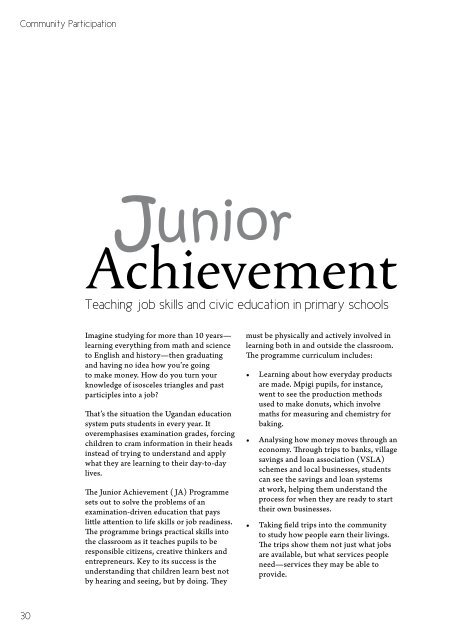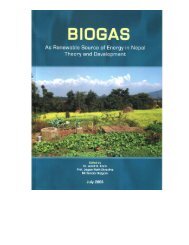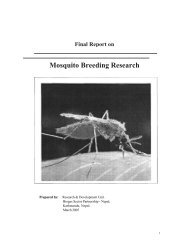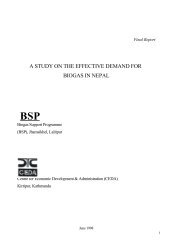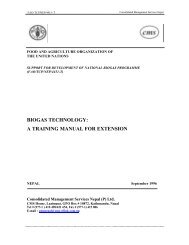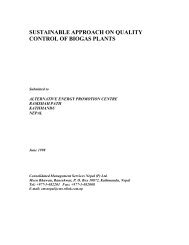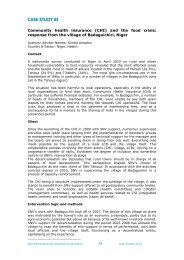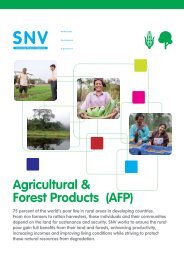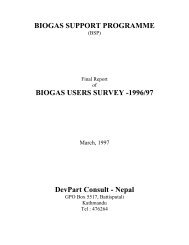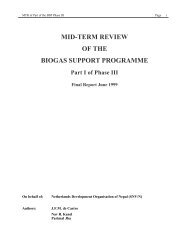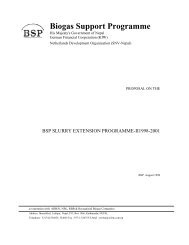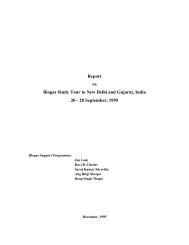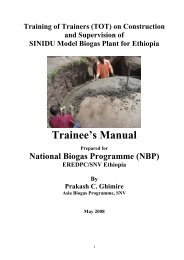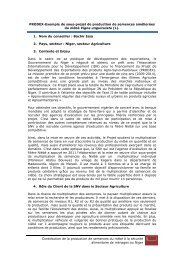School Priorities - SNV
School Priorities - SNV
School Priorities - SNV
You also want an ePaper? Increase the reach of your titles
YUMPU automatically turns print PDFs into web optimized ePapers that Google loves.
Community Participation<br />
Imagine studying for more than 10 years—<br />
learning everything from math and science<br />
to English and history—then graduating<br />
and having no idea how you’re going<br />
to make money. How do you turn your<br />
knowledge of isosceles triangles and past<br />
participles into a job?<br />
That’s the situation the Ugandan education<br />
system puts students in every year. It<br />
overemphasises examination grades, forcing<br />
children to cram information in their heads<br />
instead of trying to understand and apply<br />
what they are learning to their day-to-day<br />
lives.<br />
The Junior Achievement ( JA) Programme<br />
sets out to solve the problems of an<br />
examination-driven education that pays<br />
little attention to life skills or job readiness.<br />
The programme brings practical skills into<br />
the classroom as it teaches pupils to be<br />
responsible citizens, creative thinkers and<br />
entrepreneurs. Key to its success is the<br />
understanding that children learn best not<br />
by hearing and seeing, but by doing. They<br />
must be physically and actively involved in<br />
learning both in and outside the classroom.<br />
The programme curriculum includes:<br />
• Learning about how everyday products<br />
are made. Mpigi pupils, for instance,<br />
went to see the production methods<br />
used to make donuts, which involve<br />
maths for measuring and chemistry for<br />
baking.<br />
• Analysing how money moves through an<br />
economy. Through trips to banks, village<br />
savings and loan association (VSLA)<br />
schemes and local businesses, students<br />
can see the savings and loan systems<br />
at work, helping them understand the<br />
process for when they are ready to start<br />
their own businesses.<br />
• Taking field trips into the community<br />
to study how people earn their livings.<br />
The trips show them not just what jobs<br />
are available, but what services people<br />
need—services they may be able to<br />
provide.<br />
30


